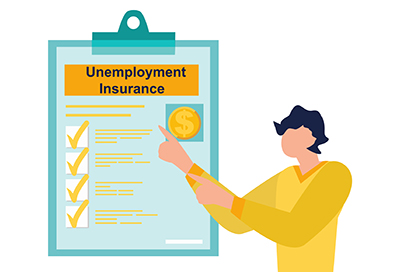In this time of uncertainty, many employers are forced to make difficult staffing decisions. Already, thousands of employers have had to let employees go, as they find themselves without enough income to support their previous staffing levels.
During this time, employees are finding they may need to turn to unemployment compensation when perhaps they’ve never done so before. And some employers are learning more about how unemployment compensation works when, until now, it’s simply been something they took for granted and paid the tax for without further consideration.
Here’s how unemployment insurance and unemployment compensation work in the United States:
- Employers are mandated to pay into unemployment via an unemployment tax. The amount employers pay is based on the number of unemployment claims they have had and their total number of employees. This mandate comes from the Federal Unemployment Tax Act (FUTA). The payments are made at both the federal and the state level.
- Unemployment tax money collected from employers goes into the Unemployment Compensation Trust Fund, where the money is held until it is used for payments of unemployment claims.
- Unemployment tax money collected at the state level is typically used to actually pay for unemployment compensation for individuals. The payout amount varies by state regulation; some states offer only basic amounts to cover essentials, while others offer payouts that are a percentage of the person’s previous pay up to a maximum payment cap. The total amount of time the payouts last is typically 6 months but may vary, especially in special circumstances. They may also vary based on an individual’s work history.
- Unemployment tax collected at the federal level typically is used to cover the costs of the program’s administration. It is also used if the state payouts have shortfalls that need to be covered in times of high unemployment locally or nationally. This can help cover more people and/or extend the number of weeks someone can collect unemployment compensation.
- When an individual becomes unemployed, he or she must apply to receive these benefits. No benefit will be provided automatically—it must be applied for and approved. Requirements for approval may also vary by state and often include minimum work periods and minimum total amounts paid by the most recent employer to qualify. In most cases, individuals fired for cause or who quit without good cause are not eligible. For those who are denied benefits, there is usually an appeal process.
Unemployment compensation can be a cornerstone item in keeping society from falling further into a recession or depression during financially difficult times because it can be used to keep individuals and families afloat, helping them pay for their rent/mortgage, utilities, groceries, basic transportation, and other essentials when they have no other income. It can be a lifeline for both individuals and society when the economy is less robust.
Bridget Miller is a business consultant with a specialized MBA in International Economics and Management, which provides a unique perspective on business challenges. She’s been working in the corporate world for over 15 years, with experience across multiple diverse departments including HR, sales, marketing, IT, commercial development, and training.

